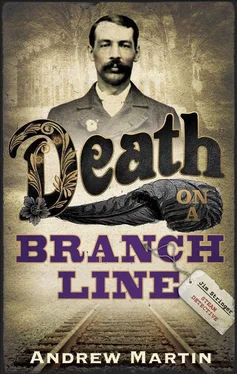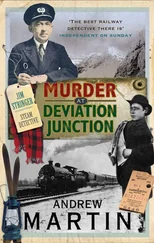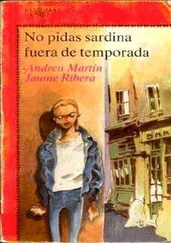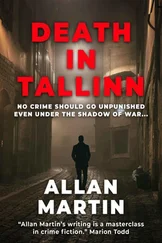Andrew Martin - Death on a Branch line
Здесь есть возможность читать онлайн «Andrew Martin - Death on a Branch line» весь текст электронной книги совершенно бесплатно (целиком полную версию без сокращений). В некоторых случаях можно слушать аудио, скачать через торрент в формате fb2 и присутствует краткое содержание. Жанр: Классический детектив, на английском языке. Описание произведения, (предисловие) а так же отзывы посетителей доступны на портале библиотеки ЛибКат.
- Название:Death on a Branch line
- Автор:
- Жанр:
- Год:неизвестен
- ISBN:нет данных
- Рейтинг книги:5 / 5. Голосов: 1
-
Избранное:Добавить в избранное
- Отзывы:
-
Ваша оценка:
- 100
- 1
- 2
- 3
- 4
- 5
Death on a Branch line: краткое содержание, описание и аннотация
Предлагаем к чтению аннотацию, описание, краткое содержание или предисловие (зависит от того, что написал сам автор книги «Death on a Branch line»). Если вы не нашли необходимую информацию о книге — напишите в комментариях, мы постараемся отыскать её.
Death on a Branch line — читать онлайн бесплатно полную книгу (весь текст) целиком
Ниже представлен текст книги, разбитый по страницам. Система сохранения места последней прочитанной страницы, позволяет с удобством читать онлайн бесплатно книгу «Death on a Branch line», без необходимости каждый раз заново искать на чём Вы остановились. Поставьте закладку, и сможете в любой момент перейти на страницу, на которой закончили чтение.
Интервал:
Закладка:
‘What’s the game?’ I asked, walking up to her.
‘I’m following him,’ she said, pointing to the clerk as he tramped across the graveyard in his cheap suit and high-crowned brown bowler.
‘But you were in front of him,’ I said.
‘I was following him from the front,’ said the wife.
The Norwood man had now cleared the graveyard and was leaving it by the opposite wicket.
‘He’s off to the parsonage,’ said the wife, as the man opened the gate of the big house behind the church, and walked up to the door.
‘Come on,’ said the wife. ‘I want to know what he’s about.’
So we too entered the graveyard, moving in the great, delaying heat between the compartments of the dead bounded by the thick dark hedges. As we walked, I told Lydia about how I’d sent for the Chief and how I expected him by the 12.27 train. I told her about how I’d met the earlier train in and collared the man in the field boots, and she in turn said that she’d had breakfast at the long table outside the inn, where entertainment had been provided by the sight of the bicyclist making a show of mending his puncture.
‘He was making such a palaver that I challenged him directly about it,’ she said.
‘Oh Christ,’ I said. ‘What did you say?’
‘I just said, “Surely this hole is of your own making. I saw you attack the tyre last night.”’
‘Pitch right in, I would… And what did he say to that?’
‘He said, “I had a fancy that it was punctured, but I thought I’d make quite sure.”’
‘He never did,’ I said.
‘That’s what he said.’
‘Did he seem put-out?’
‘Yes.’
‘I’ll bet. I’ll bet he was creaking in his shoes.’
‘I couldn’t imagine how anybody could behave more suspiciously,’ the wife ran on, ‘until about two minutes later when that man came down to breakfast, and started looking over his German papers while drinking coffee.’
And she pointed towards the vicarage, where we glimpsed through low graveyard trees the Norwood clerk, still waiting to be admitted. We’d come to a stop before one of the newer graves, which stood outside the green enclosures and lay exposed to the bright sun. ‘In Memoriam,’ I read, ‘Sir George Arthur Horton Lambert, Baronet. 1855–1909. Deus Fortitudo Mea.’ That meant something like ‘God give me strength’. No, couldn’t be. It was a very simple inscription anyhow, but then I supposed there were many things you couldn’t very well put on a murdered man’s gravestone. ‘Died peacefully’ was out for starters; so was ‘Loved by all’. There were no flowers on the grave but just a single bush growing up from the grass mound.
‘He was reading his German papers over coffee at the front table,’ the wife repeated, looking across at the Norwood man, ‘and when I walked behind him, pretending to be interested in the wisteria, he folded them up. A moment later, he turned to me and said, “I say, you’re quite sure your husband ain’t Franklin? It makes no odds either way to me. Only, I know Franklin’s expected.”’
I looked surprise at the wife. She had made a very fair imitation of the man’s cockney accent.
‘I’ve already told him I’m not Franklin,’ I said.
‘Well then, he doesn’t believe you.’
‘Wait a bit,’ I said. ‘What if the man in the field boots is Franklin?’
The door of the vicarage remained unopened, but as we looked on, the red-faced parson appeared from around the side of the house, and shook the clerk’s hand. He then took him back around the side with him.
‘Come on,’ said the wife, and we closed on the house.
From the front gate, we could hear the vicar talking to the man from Norwood, but could not make out the words. The two were in the back garden.
‘We’ll walk round the side of the house, only we’ll do it slowly, listening out all the while,’ said the wife, pushing open the front gate.
‘What’ll we say if they see us?’
‘Hello,’ she said, ‘we thought it was part of the common.’
‘That won’t wash,’ I said.
‘Then we’ll ask about service times in the church.’
‘Push on, then,’ I said.
The wife opened the gate, and we both stepped into the garden. She let go of the gate, and it clanged shut. It was on a spring. The wife turned to me and gave a look of alarm with eyes extra-wide, which she did half in jest. I thought: She was worried for a while last night, but now she’s back to larking about. The fact that we’d been told we were in danger seemed to have faded completely from her thoughts.
The vicar’s garden was well-kept and well-watered. The grass was bright green. The flowerbeds were as bright and various in colour as Turkey carpets, but what stood out was the red: red apples hanging from the trees, red roses — and the red ribbon in the hat of the red-faced vicar as he led the man from Norwood through the rear garden. He was escorting him towards the opened doors of a round wooden summerhouse, and the surprising thing was the tone of his speech. He had that glorious house and garden — his own little Yorkshire Eden — and yet he sounded glum; sounded like a right misery, in fact.
‘Servants, curate and verger gone away to Scarborough,’ he was saying, as the birds in his beautiful garden sang like mad. ‘… I had to see to my own breakfast, and not an egg to be found…’
The two entered the summerhouse, and were lost from earshot.
It was little more than a circle of French windows — mostly propped open — with a wooden roof on top. It stood at the very end of the garden, and just behind it were iron railings separating the back of the vicarage garden from the woods that were everywhere around Adenwold. To the left side of the summerhouse (as we looked) stood a row of sweet peas supported on canes, making a kind of wall. Lydia eyed me, and we had the same thought in the same instant. We dashed past the sweet peas and so, screened from the summerhouse, gained the rear railing. We climbed over, and were in the edge of the woods.
Here, we could loiter and watch through the glass without being on trespass, and without having to account for ourselves.
And that’s what we did.
Chapter Seventeen
The summerhouse was bare except for a couple of occasional tables, and deckchairs pointing in various directions to catch the sun at different times — it was a sort of temple for sun worship. As we looked on, a fox terrier walked into it from the vicarage garden, wagging its tail and happy as you like. The Norwood man made to stroke it, but the vicar roared ‘Out!’ and it bolted in terror. The parson then turned to his visitor: ‘Now, Gifford,’ he said (so that at last the man’s name was disclosed), ‘shall we get down to business?’
They moved over to one of the small tables, and Gifford removed from his case the objects in the cloth bags that he had spilled onto the road the night before. There were four, as when he’d had his spillage, and he placed them on the table before the parson, saying:
‘These are hot from the factory in Germany as you might say, sir. Direct from the boys in Nuremberg. They come with all the usual etceteras.’
The fixed agent meets the travelling agent — was that what I was seeing?
Gifford was now taking papers out of his case — no doubt the ones written in German, although I couldn’t see them in detail.
‘I’ve looked them over, but it’s all Hebrew to me,’ he said, passing them to the vicar.
I kept glancing across to look at the wife’s face. She’d removed her straw boater, and was so intent on the summerhouse that it was like being at the music hall with her, looking at her as she strained forward to see what would happen next, quite ignoring the man at her side. The parson looked over the papers, and he could obviously read German. Nothing so surprising in that: he was an educated man. Meanwhile, he held the object that was inside one of the cloth bags. Why wouldn’t he remove the bloody thing?
Читать дальшеИнтервал:
Закладка:
Похожие книги на «Death on a Branch line»
Представляем Вашему вниманию похожие книги на «Death on a Branch line» списком для выбора. Мы отобрали схожую по названию и смыслу литературу в надежде предоставить читателям больше вариантов отыскать новые, интересные, ещё непрочитанные произведения.
Обсуждение, отзывы о книге «Death on a Branch line» и просто собственные мнения читателей. Оставьте ваши комментарии, напишите, что Вы думаете о произведении, его смысле или главных героях. Укажите что конкретно понравилось, а что нет, и почему Вы так считаете.











